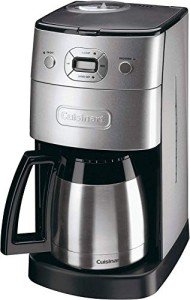10 Healthy Habits To Use Coffee Brewers
The Rise and Reign of Coffee Brewers: A Comprehensive Guide to Brewing Perfection
Coffee is more than just a drink; it's a ritual that lots of all over the world cherish. Whether it's the very first cup to start the day or a mid-afternoon pick-me-up, the technique of preparation significantly influences the taste and total experience of coffee. Coffee brewers have actually evolved substantially for many years, from conventional drip machines to advanced espresso makers, making it vital for coffee enthusiasts to comprehend the numerous types readily available and their unique advantages.
The Evolution of Coffee Brewing Methods
Coffee brewing has an abundant history that covers centuries. The method utilized frequently reflects cultural traditions and developments in innovation. Here, we will explore a few of the most popular coffee brewing approaches, their pros and cons, and which type of brewer might suit different lifestyles and preferences.
1. Drip Coffee Makers
The drip coffee machine is one of the most popular developing approaches, especially in homes and offices.
Pros:
- Simple to utilize: Just add water and coffee grounds.
- Ideal for developing several cups at the same time.
- Constant flavor with automatic temperature control.
Cons:
- Limited control over developing time and temperature level.
- Usually requires filtered coffee, which some might discover limiting.
2. French Press
The French press, likewise understood as a press pot or plunger pot, is favored by lots of for its abundant taste extraction.
Pros:
- Allows for total control over developing time.
- Produces a thick and flavorful cup of coffee.
- No need for paper filters, which is eco-friendly.
Cons:
- Requires more manual effort than automatic machines.
- Can lead to sediment in the bottom of the cup.
3. Espresso Machines
Espresso machines range from manual to completely automated systems developed to produce concentrated coffee shots.
Pros:
- Versatile: Can make espresso, cappuccinos, lattes, and more.
- Creates abundant, bold flavors and a velvety crema.
Cons:
- Typically more pricey and needs more knowledge to run.
- Cleaning and upkeep can be more complicated.
4. Pour-Over Coffee Makers
Pour-over techniques like the Chemex and Hario V60 have actually gotten traction for their capability to brew a clean and aromatic cup.
Pros:
- Provides exceptional control over the brewing process.
- High-quality taste extraction when done properly.
Cons:
- Time-consuming and needs skill to ideal.
- Not perfect for producing large quantities.
5. Cold Brew Coffee Makers
Cold brew is made by soaking coarsely ground coffee in cold water, producing a smooth, less acidic beverage.
Pros:
- Smooth and rejuvenating, with lower level of acidity compared to hot brew.
- Can be made in large batches and saved for days.
Cons:
- Requires innovative preparation, as steeping can take 12 to 24 hours.
- Some may not value the unique flavor profile.
Developing Method
Pros
Cons
Drip Coffee Maker
Basic, brews numerous cups
Restricted control
French Press
Complete control, abundant taste
Manual effort needed
Espresso Machine
Versatile, rich tastes
Greater expense and intricacy
Pour-Over
Outstanding control, high-quality taste
Time-consuming, skill-dependent
Cold Brew
Smooth, low acidity
Long developing time, unique flavor profile
Choosing the Right Coffee Brewer
When selecting a coffee maker, a number of factors should be taken into account:
Brew Size: How lots of cups do you usually make at the same time? For those developing for a crowd, a drip coffee maker or a bigger French press might be ideal.
Time Commitment: How much time are you happy to devote to developing? If time is of the essence, automatic machines may be preferable.
Flavor Preferences: Do you delight in complicated tastes and boldness? An espresso machine or pour-over approach might be ideal.
Budget plan: High-quality coffee machines can range significantly in cost, so identifying your spending plan will narrow down options.
Space: Consider the countertop space offered in your kitchen, as some brewers can be quite large.
FAQs About Coffee Brewers
1. How do I clean my coffee maker?
The majority of coffee machine have specific cleaning guidelines in their manuals, but simple methods include:
- For drip coffee makers: Run an option of vinegar and water through the brew cycle followed by clean water.
- For French presses: Disassemble the plunger and clean it under hot water using a soft sponge.
2. How frequently should I change my coffee machine?
Typically, coffee makers can last anywhere from 5 to 10 years with proper care. If you discover a decline in the flavor of your coffee or relentless concerns with performance, it may be time for a replacement.
3. Can I utilize routine coffee with an espresso machine?
Yes, you can utilize regular coffee, but it won't yield the very same concentrated flavor profile as utilizing espresso roast coffee particularly created for such machines.
4. What is the very best coffee-to-water ratio for brewing?
A basic standard is the “Golden Ratio” of 1:16, which is one part coffee to 16 parts water, but experimentation may lead you to your individual choice.
5. Are costly coffee makers worth it?
Higher-end coffee makers frequently have better develop quality, more functions, and offer much better flavor control. Nevertheless, “worth it” can be subjective based upon specific needs and budget plan.
The variety of coffee brewers readily available today enables lovers to check out and try out tastes, strategies, and developing times, making every cup a special experience. Whether going with Versatile Coffee Makers or mastering the art of espresso developing, the journey of developing the perfect cup of coffee continues to progress. By comprehending the various brewing approaches and their qualities, individuals can make educated choices that improve their day-to-day coffee routine and gratitude. After all, the right maker can make all the distinction in enjoying that much-loved cup of joe.
